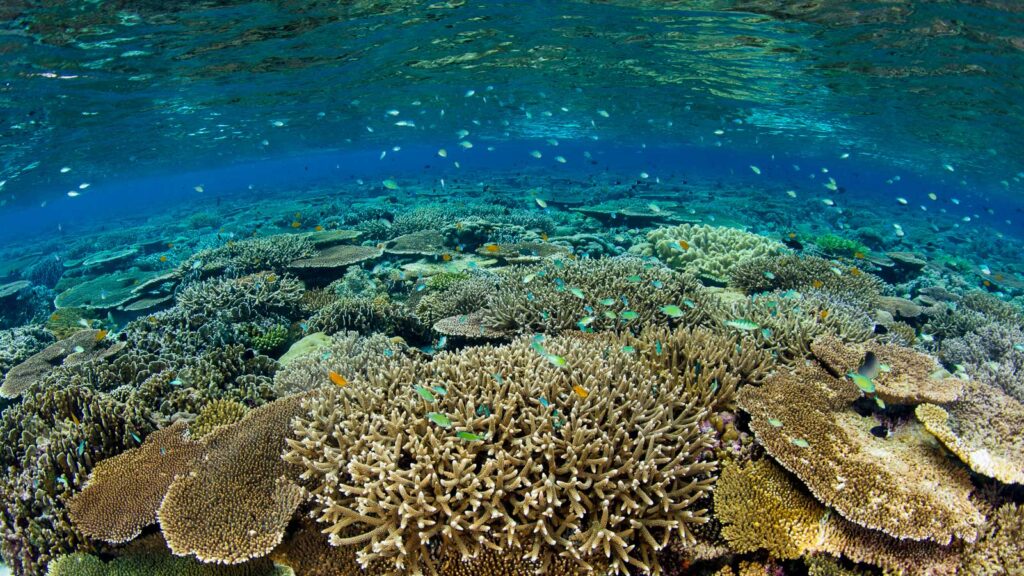A powerful new environmental taskforce has been launched by Gulf countries to tackle two major environmental threats—coastal erosion and coral bleaching. This regional effort aims to bring scientists, governments, and local communities together to protect marine ecosystems and restore biodiversity in Gulf waters.
With rising temperatures, stronger tides, and increasing human activity, the beautiful coastlines and coral reefs of the Gulf are under serious threat. This joint taskforce brings hope, as it introduces both strong collaboration and major funding to protect the marine environment.
Joint Research Missions Begin Across the Region
The newly formed Gulf Environmental Taskforce includes key members from the United Arab Emirates, Saudi Arabia, Bahrain, Kuwait, Qatar, and Oman. One of its main goals is to organize joint research missions in the Gulf to study the condition of marine ecosystems in real time.
These missions will involve advanced monitoring technologies, marine biology teams, and underwater drones. By collecting data from various parts of the region, scientists will better understand how climate change, pollution, and overfishing are impacting coral reefs and coastlines.
The first research mission is already planned for this summer, and it will focus on mapping coral bleaching levels in the southern part of the Gulf. Coral bleaching happens when coral reefs lose their color and health due to rising sea temperatures. If left untreated, the damage can become permanent, affecting both marine life and local fishing communities.
Funding Support for Marine Biodiversity Protection

Along with the research missions, the taskforce will also provide significant funding to help save and restore marine biodiversity. Government bodies and private environmental foundations have promised over $200 million in support over the next five years.
These funds will go toward several important initiatives, including:
- Building artificial reefs to support marine life
- Restoring damaged coral reef zones
- Training young marine scientists in the region
- Launching awareness programs in schools and communities
The taskforce also hopes to involve fishermen and coastal communities directly in these efforts. “They are the ones most affected by environmental damage, and they can become our strongest partners in protection and restoration,” said one of the taskforce leaders during the announcement.
Stronger Rules Coming to Protect the Gulf’s Natural Borders
Another important part of this mission is strengthening environmental policies. Gulf countries have agreed to review their current marine protection laws and update them to include stricter penalties for illegal dumping, overfishing, and coastal development without permits.
There are also plans to create new marine protected zones in areas that are home to vulnerable species such as dugongs, sea turtles, and reef fish. These zones will be monitored closely, and fishing or industrial activity will be limited or banned in certain periods.
Local governments have promised that these new laws will not only protect nature but also support sustainable tourism and eco-friendly economic growth in the long term.
Technology Brings Power and Water Use Into Citizen Hands
In addition to environmental protection, another major breakthrough has been announced. Citizens in several Gulf countries will now have access to real-time tracking of their electricity and water usage through digital apps and online dashboards.
This initiative is part of a wider plan to promote sustainability and energy efficiency. By knowing how much water and electricity they are using at any moment, residents can take better steps to reduce waste and lower their bills.
The new smart systems are being installed in homes, offices, and public buildings. They come with user-friendly interfaces that show daily, weekly, and monthly usage data. Some apps even provide suggestions to improve efficiency, like reducing appliance usage during peak hours or fixing leaks that waste water.
Government officials believe that giving this power directly to citizens will help the region achieve its green goals faster.
A Region Moving Towards Green Leadership

These two announcements—the Gulf Environmental Taskforce and the real-time utility tracking—signal a major shift in how the region views environmental responsibility.
For years, Gulf countries have been seen mostly as oil producers, but this move shows that they are ready to lead in sustainability and green innovation too. The combination of science, funding, and citizen engagement creates a strong foundation for long-term impact.
Experts believe that this regional cooperation could serve as a model for other parts of the world struggling with similar marine and environmental problems. By working together instead of separately, the Gulf states are proving that climate action is not only possible but powerful.
What This Means for Everyday People
For regular citizens, these efforts are more than just big announcements. The protection of coastlines means safer communities from flooding and stronger local fishing industries. The preservation of coral reefs ensures that future generations can still enjoy diving and exploring the underwater beauty of the Gulf.
At the same time, the real-time tracking of water and electricity gives families the tools they need to take part in change. “It feels good to know we’re making a difference at home,” said one Dubai resident who started using the new app. “I never knew how much water we were wasting before.”
Looking Ahead: Gulf Future in Green Hands
As the world faces more frequent climate challenges, Gulf countries are stepping up in a big way. By launching this environmental taskforce and offering smart tools to the public, they are sending a clear message—protecting nature is not just a goal, it’s a shared duty.
The coming months will bring the first visible results of these efforts, from coral reef restoration to improved water habits in households. And while there’s still a long way to go, this united approach shows that the Gulf is ready to build a cleaner, greener future—starting now.
Also read: GCC Countries Sign Unified Digital ID Framework Agreement



